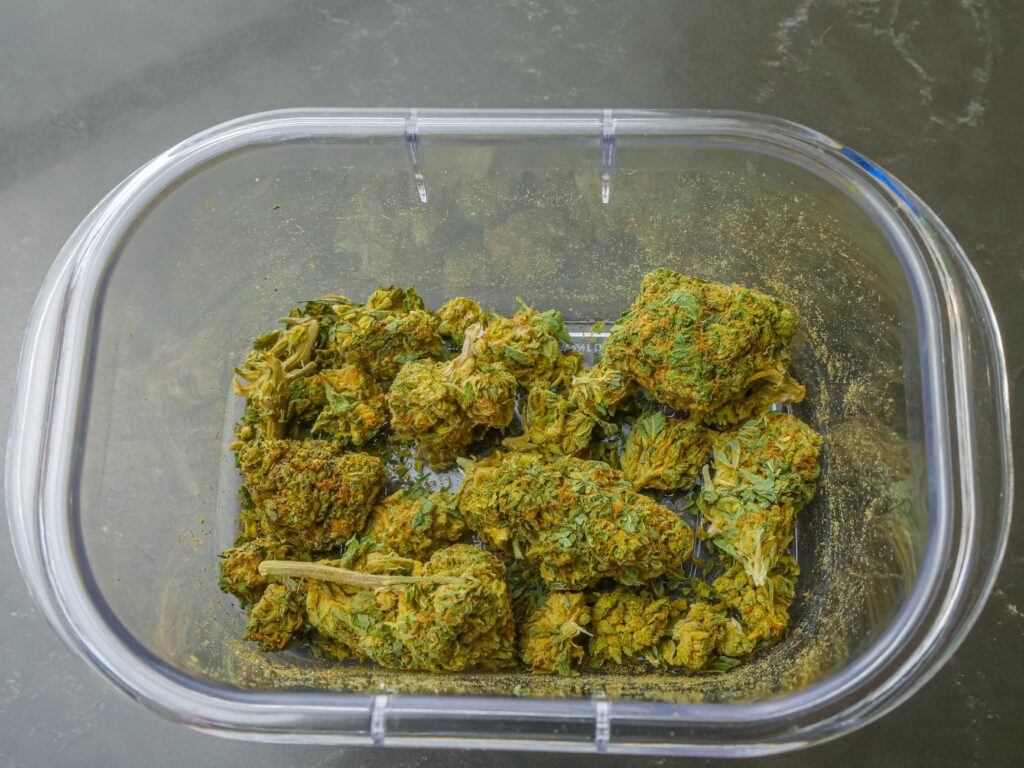Marijuana Withdrawal and Medical Detox: A Guidebook for Effective Treatment

Quitting Marijuana is entirely possible!
If you are someone who is struggling with marijuana addiction and even after trying so many times, you were not able to quit, there is still hope left.
Marijuana addiction is not as deep-rooted as other controlled substances like cocaine and nicotine. This single fact is more than enough to fill you with confidence into quitting marijuana.
Quitting marijuana might have a challenging aspect to it. However, with professional substance abuse treatment, recovery is possible.
In that context, we bring this guide to you, which will discuss marijuana addiction and its recovery process.
What Is Marijuana?

Marijuana is a known name around the world, mostly for its addictive property. In fact, it is this addictive property that has made the nation ban it.
Marijuana is referred to as the dried leaves, stems, or flowers of the Cannabis Sativa plant. It contains the psychoactive chemical delta-9-tetrahydrocannabinol (THC).
People who have developed a significant dependence on marijuana experience troublesome withdrawal symptoms during the early recovery period.
Effects Of Marijuana Abuse?

When marijuana is smoked, the THC enters your lungs and from there to your bloodstream. Blood streams carry the THC to your brain and other organs. The brain’s cannabinoid receptor reacts to THC, which affects the neural communication network of the body.
THC affects the brain to stimulate pleasure, memory, sensory perception, and coordinated movement. Furthermore, marijuana over activates your endocannabinoid system that takes the user to a mental state of HIGH.
During this state, the user experience:
• Decreased appetite.
• Impaired coordination.
• Altered perception.
• Difficulty in recollecting the memories.
• Mood swings.
Marijuana addiction can affect a person’s life in different ways. Research indicates that people suffering from marijuana addiction have lower life satisfaction, poor physical and mental health, and relationship problems.
Seeing how marijuana addiction can impact your life, it is important to seek professional guidance like this one when you find yourself among this addiction.
Marijuana Addiction: Health Risks

Although people tend to turn towards marijuana to relieve their stress, it does come with another series of health issues. Particularly related to heat and lungs.
Marijuana smoke is an irritant to the lungs. As a result, people who smoke marijuana frequently experience severe respiratory problems.
Here are a few problems that you might experience:
• Acute chest illness.
• Higher risk of lung infection.
• Daily cough and phlegm production.
• Weak immune system.
• Fertility issues.
• Increased heart rate and blood pressure.
Furthermore, if you are using marijuana during pregnancy, it can increase the risk of neurobehavioral problems in babies. Consequences for the child also include memory problems, improper brain development.
Marijuana Addiction Symptoms

Marijuana addiction is mostly diagnosed in adults and young adulthood. However, the recent trends related to social acceptance have increased the use of marijuana. In fact, with the recent highlight of the medical benefit of marijuana, the drug may also increase the addiction rate in older adults.
As with the type of drugs, there are both behavioral and physical symptoms that are physically visible.
Behavioral changes include:
• Impaired coordination.
• Distorted perception.
• Memory loss.
• Relationship with the others.
• Physical changes include:
• Huger.
• Dry mouth.
• Rapid heartbeat.
• Slow reaction time.
• Bloodshot eyes.
• Mucus-filled cough.
• Marijuana Withdrawal Symptoms
Long-term marijuana abuse can result in dreadful withdrawal symptoms. It typically develops in the first week of discontinuation of marijuana usage.
Some of the most common withdrawal symptoms include:
• Sleep difficulty.
• Restlessness.
• Depressed mood.
• Decreased appetite.
• Anxiety.
• Getting angry over small things.
• Out of place aggression.
• Abdominal pain.
• Headache.
• Sweating.
Since many of these withdrawal symptoms mimic many warning signs, it is important to seek help the moment you notice one. Experts will be able to tell you whether or not this is due to the marijuana withdrawal.
Marijuana Addiction Treatment

Marijuana addiction is not as severe as other drug addictions like Nicotine, Cocaine, or alcohol. Hence, most people might find that their effort is more than enough to quit smoking marijuana.
However, the real problem starts with the relapse. Without any professional guidance, people find themselves starting their old habits and getting addicted to marijuana.
If this stands true in your case, the following resources might be helpful.
1. Detoxification Center
Detoxification centers are established institutions that offer a safe environment for the patients to get through the initial drug-free stage. In addition, they provide assistance and medical care to suppress your withdrawal symptoms.
2. Rehabilitation Center
Rehabilitation centers are designed to assist people for a longer period of time. When a patient is suffering from severe attacks of addiction, it is suggested that they must go to a rehabilitation center. Rehabilitation centers have all the facilities patients need to cure their addiction.
3. Addiction Treatment Programs

Addiction treatment programs often require multiple meetings or sessions with the therapist or counselor. In this type of treatment, you are not required to stay in the facility. You are free to go back home. However, it is necessary that you attend your session regularly.
4. Support Group
Support groups are the local organizations that help people suffering from addiction. These groups can be NGOs or controlled by the governments.
5. Therapies
Therapies are the one-to-one conversation with the patients to understand the underlying problem of the addiction. Therapies mostly focus on creating a connection with the patients and making them understand the vicious addiction cycle.
Take Away
While the withdrawal symptoms of Marijuana might not be as severe as other controlled substances, it’s withdrawal or real. People who smoke cannabis can become patients to addiction in no time. They may experience symptoms like insomnia, mood swings, and extensive irritability while trying to quit.
We have already talked about everything related to marijuana in this article. Even after this, if you find any lack of information, do point it out. We will ensure that it gets duly updated.




